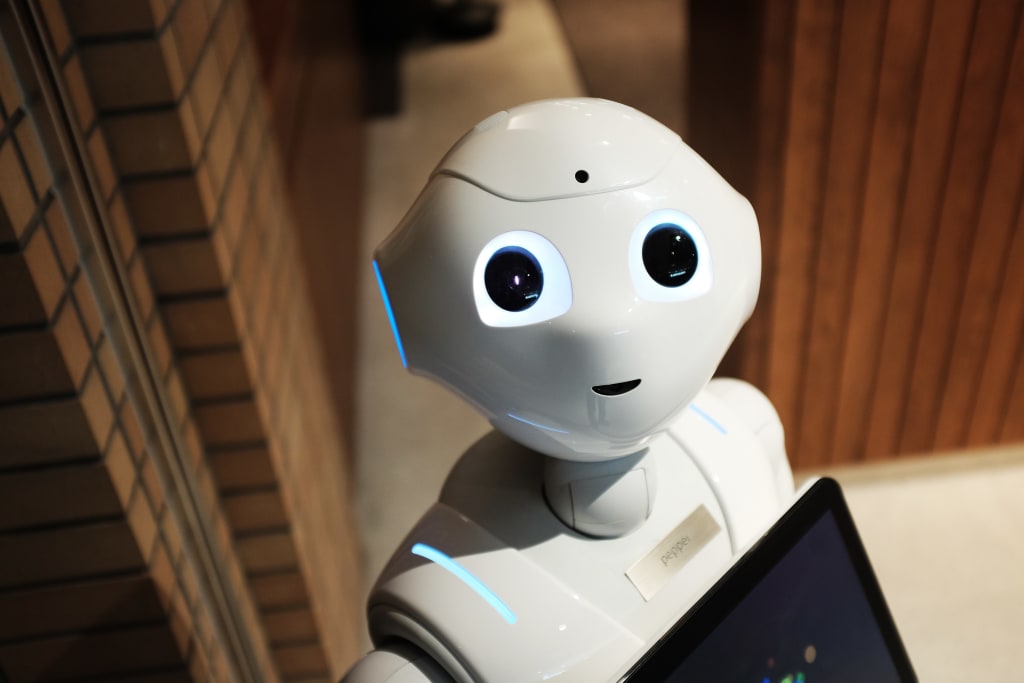The Future of Technology: 5 Technologies That Will Change Our Lives Forever
The Game changer

I. Introduction
Technology has already transformed the way we live, work, and interact with one another. From smartphones and social media to smart homes and self-driving cars, technology has made our lives more efficient, convenient, and connected. However, the pace of technological change shows no signs of slowing down. In the years ahead, there are several emerging technologies that are poised to revolutionize the way we live even further. In this article, we'll explore five technologies that are likely to change our lives forever: Artificial Intelligence (AI), Internet of Things (IoT), Augmented Reality (AR) and Virtual Reality (VR), Blockchain, and Quantum Computing.
II. Artificial Intelligence (AI)
Artificial Intelligence (AI) refers to the ability of machines to learn, reason, and make decisions like humans. AI is already being used in a wide range of applications, from voice assistants like Siri and Alexa to predictive analytics in healthcare and finance. However, the potential of AI goes far beyond these applications. In the future, AI could be used to automate a wide range of tasks, from driving cars to diagnosing diseases. This has the potential to make our lives more efficient and convenient, but it also raises questions about the impact of automation on jobs and society as a whole.
III. Internet of Things (IoT)
The Internet of Things (IoT) refers to the network of interconnected devices and sensors that are embedded in everyday objects, from appliances and vehicles to clothing and buildings. IoT devices can communicate with one another and share data, allowing for new levels of automation, efficiency, and control. For example, a smart home might have sensors that can detect when someone enters a room and adjust the temperature and lighting accordingly. In the future, IoT could be used to create smart cities, where everything from traffic lights to public transportation is connected and optimized for efficiency.
IV. Augmented Reality (AR) and Virtual Reality (VR)
Augmented Reality (AR) and Virtual Reality (VR) refer to technologies that enable users to interact with digital content in immersive and interactive ways. AR overlays digital information onto the real world, while VR creates fully immersive digital environments. Both AR and VR are already being used in entertainment and gaming, but they also have potential applications in fields like education, healthcare, and architecture. For example, AR could be used to create interactive educational content that overlays information onto real-world objects, while VR could be used to create virtual environments for medical training or architectural design.
V. Blockchain
Blockchain technology is a decentralized digital ledger that records transactions in a secure and transparent way. Each transaction is recorded as a block in the chain, and each block is linked to the previous block, creating an unalterable record of all transactions. Blockchain is best known as the technology behind cryptocurrencies like Bitcoin, but it has potential applications in fields like supply chain management, voting, and identity verification. For example, blockchain could be used to create a secure and transparent supply chain for food and pharmaceuticals, allowing consumers to track the origin and quality of the products they buy.
VI. Quantum Computing
Quantum computing refers to the use of quantum-mechanical phenomena, such as superposition and entanglement, to perform calculations that are impossible with classical computers. Quantum computers have the potential to solve complex problems in fields like cryptography, chemistry, and materials science. For example, quantum computers could be used to create unbreakable encryption, simulate complex chemical reactions, or design new materials with specific properties. While quantum computers are still in the early stages of development, they have the potential to revolutionize the way we solve some of the world's most challenging problems.
VII. Conclusion
The five technologies discussed above have the potential to transform our lives in ways that we can only begin to imagine. They offer new levels of automation






Comments
There are no comments for this story
Be the first to respond and start the conversation.